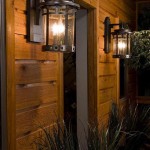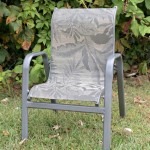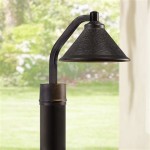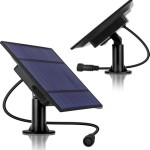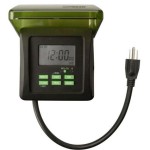What Type Of Bulb For Outdoor Lighting
Outdoor lighting is an essential part of any home, providing safety, security, and aesthetic appeal. Selecting the right type of bulb for your outdoor fixtures is crucial to achieving the desired ambiance and functionality. With a wide range of options available, understanding the characteristics and applications of different bulb types can help you make an informed decision.
Incandescent Bulbs
Incandescent bulbs, while traditional and familiar, are gradually becoming less common for outdoor use. These bulbs produce light by heating a filament until it glows, emitting a warm and inviting yellowish light. However, incandescent bulbs are energy inefficient, generating significant heat and consuming more electricity than modern alternatives. Their lifespan is also considerably shorter, often lasting less than 1,000 hours. While they may still be suitable for certain applications, such as decorative lighting, they are generally not recommended for primary outdoor lighting due to their energy consumption and short lifespan.
Halogen Bulbs
Halogen bulbs are an improvement over incandescent bulbs, offering greater efficiency and a longer lifespan. They operate similarly to incandescent bulbs, using a filament but with the addition of halogen gas. This gas allows the filament to reach higher temperatures, resulting in brighter light and improved efficiency. Halogen bulbs emit a slightly whiter light than incandescent bulbs, providing a more modern feel. They also have a longer lifespan, typically lasting around 2,000-4,000 hours. However, halogen bulbs still generate considerable heat and are susceptible to breakage if handled improperly.
Fluorescent Bulbs
Fluorescent bulbs are a popular choice for outdoor lighting, known for their energy efficiency and extended lifespan. These bulbs use a gas discharge process to produce light, emitting a cool and bright white light. Fluorescent bulbs offer significantly improved energy efficiency compared to incandescent and halogen bulbs, consuming considerably less electricity for the same amount of light output. Their lifespan is also substantially longer, lasting up to 10,000-20,000 hours. However, fluorescent bulbs can be prone to flickering or buzzing, and they may take some time to reach full brightness after being turned on.
LED Bulbs
LED (Light Emitting Diode) bulbs are rapidly becoming the preferred choice for outdoor lighting, offering a combination of energy efficiency, long lifespan, and versatility. LEDs use semiconductor technology to produce light, emitting a crisp and bright white light. They consume significantly less energy than other bulb types, offering substantial savings on electricity costs. LED bulbs also have an exceptionally long lifespan, lasting up to 50,000 hours or more. Additionally, they are durable, resistant to shock and vibration, and operate at low temperatures, eliminating the risk of fire hazards. LED bulbs are available in various color temperatures and brightness levels, catering to different lighting needs and preferences.
Choosing the Right Bulb for Your Needs
When selecting a bulb for outdoor lighting, consider the following factors:
- Light Output: Measured in lumens, light output determines the brightness of the bulb. The required light output depends on the purpose of the lighting, such as security lighting, decorative lighting, or pathway lighting.
- Color Temperature: Measured in Kelvin (K), color temperature influences the appearance of the light, ranging from warm white (2700-3000K) to cool white (5000-6500K). Warm white light is often preferred for decorative lighting, while cool white light is suitable for safety and security purposes.
- Energy Efficiency: Measured in lumens per watt (lm/W), energy efficiency indicates how much light is produced per unit of energy consumed. Higher lm/W values indicate greater energy efficiency. LED bulbs generally have the highest lm/W values, followed by fluorescent bulbs.
- Lifespan: The lifespan of a bulb is measured in hours, indicating how long it can be used before needing replacement. LED bulbs have the longest lifespans, followed by fluorescent bulbs.
- Durability: Consider the durability of the bulb based on its location and potential hazards. LED bulbs are generally more durable than other bulb types, resistant to shock and vibration.
- Dimmability: Some bulbs are dimmable, allowing for adjustable brightness levels. LED bulbs are increasingly available in dimmable options, providing greater control over lighting ambiance.
- Weather Resistance: Outdoor fixtures require bulbs with weather resistance, certified as wet-rated or damp-rated. LED bulbs are typically weather-resistant, suitable for outdoor use.
By carefully considering these factors and researching the specific requirements of your outdoor fixtures, you can select the most appropriate bulb type for your needs, ensuring optimal functionality, energy efficiency, and aesthetic appeal.

Landscape Lighting Installation Companies Types Of Light Bulbs For Outdoor Orlando Florida Palmer Electric Company

Everything To Know About Bulbs For Landscape Lighting

Best Outdoor Lighting Bulbs Of 2024

Indoor And Outdoor Light Bulbs Pacific Lamp Supply Company

12 Types Of Street Light Bulb For Any Outdoor Lighting Illumination Heisolar

What Is The Best Led Color Temperature For Outdoor Lighting

How To Choose The Best Outdoor String Lights

Outdoor Light Bulbs Yard Envy

Choose The Best Color Temperature For Your Outdoor Lighting Knowledge Base Super Bright Leds

9 Best Light Bulbs For Outdoor Fixture In 2024
Related Posts
